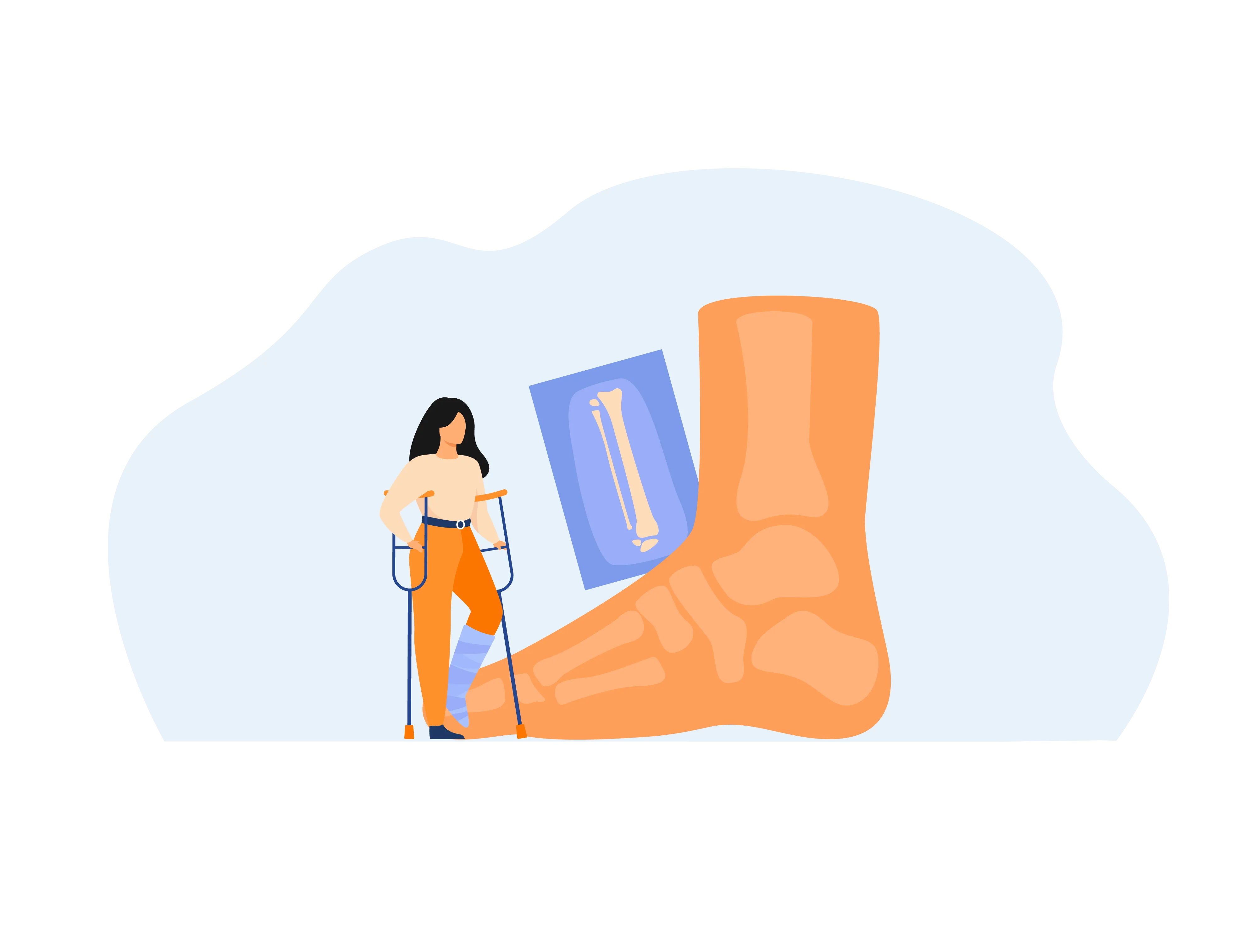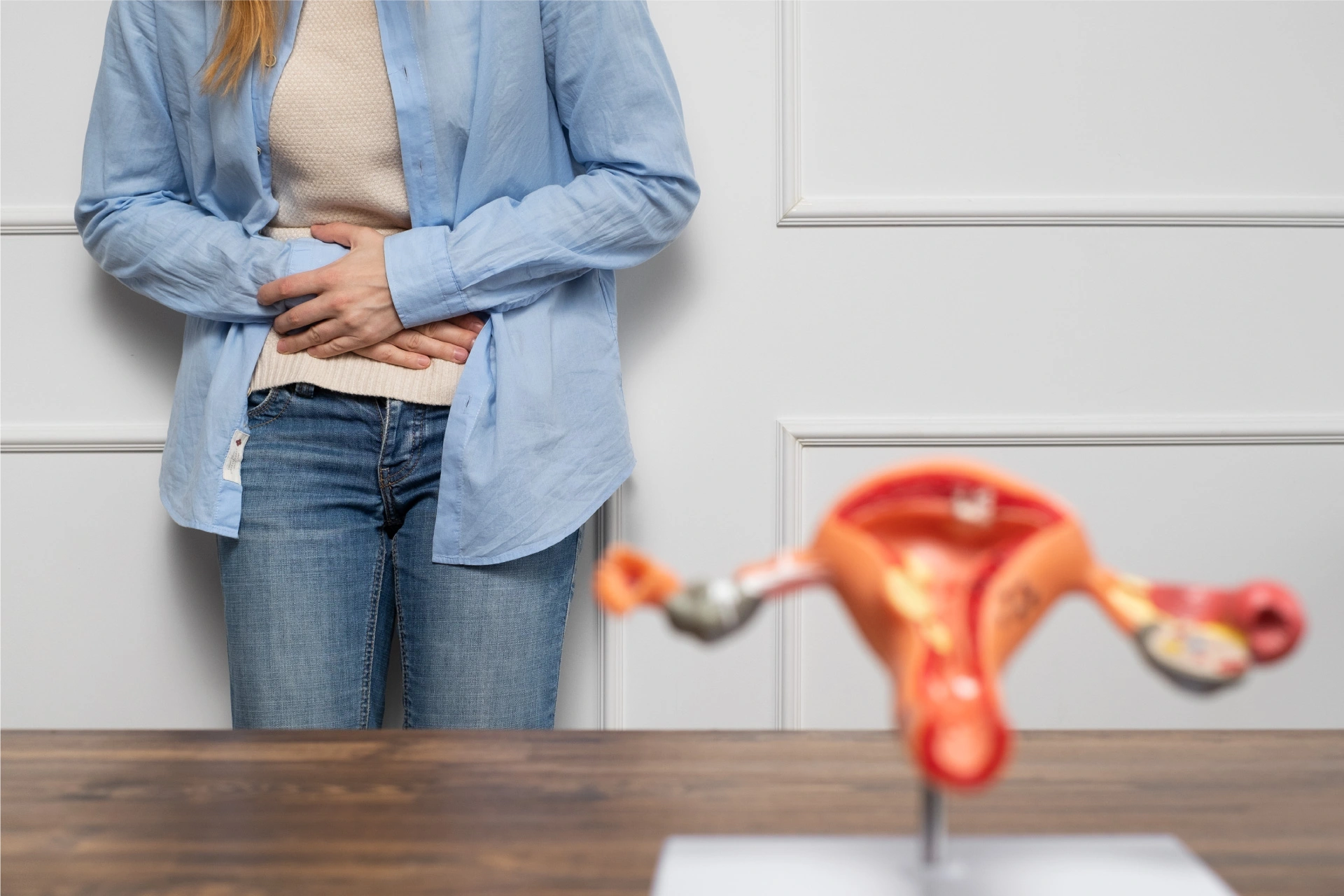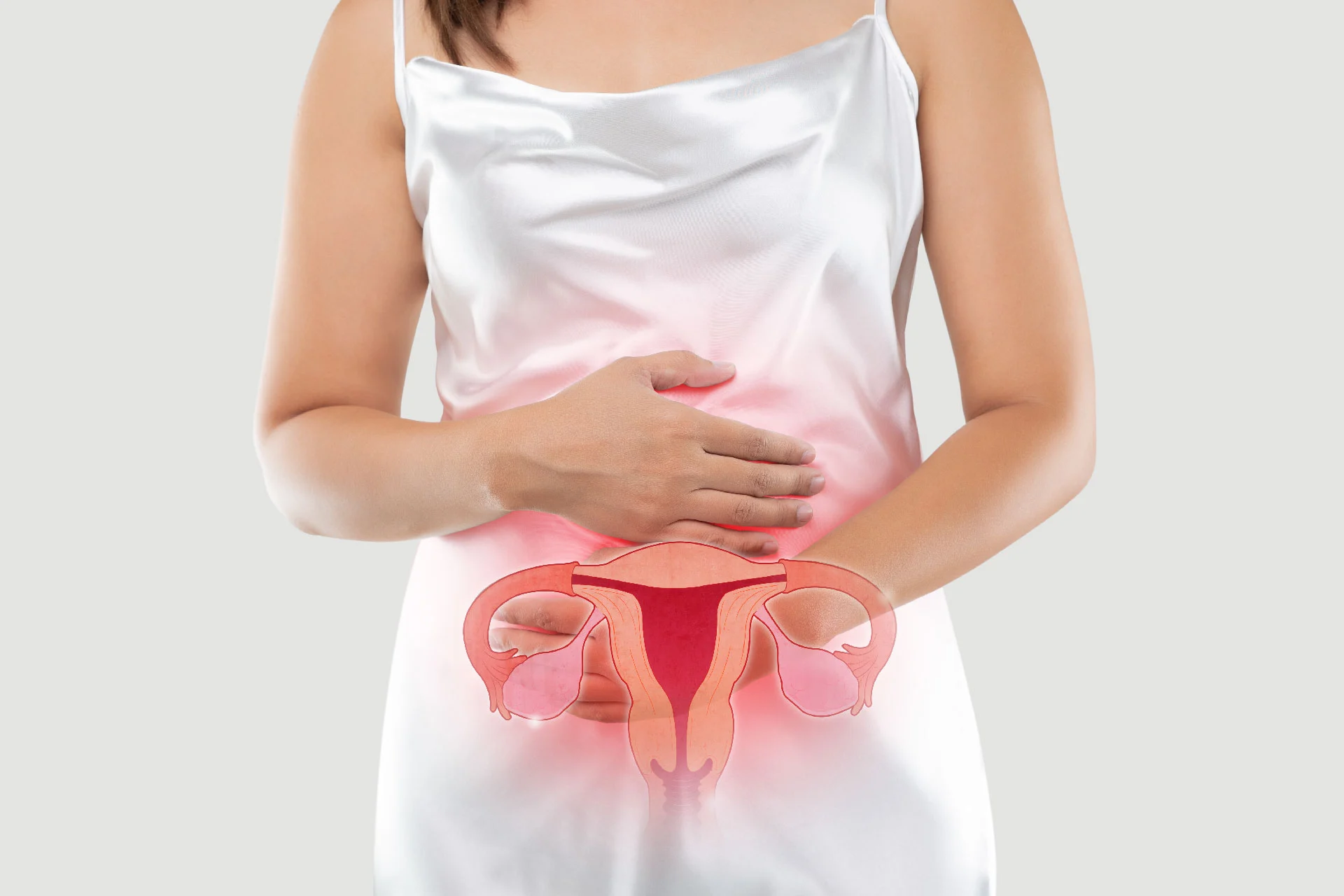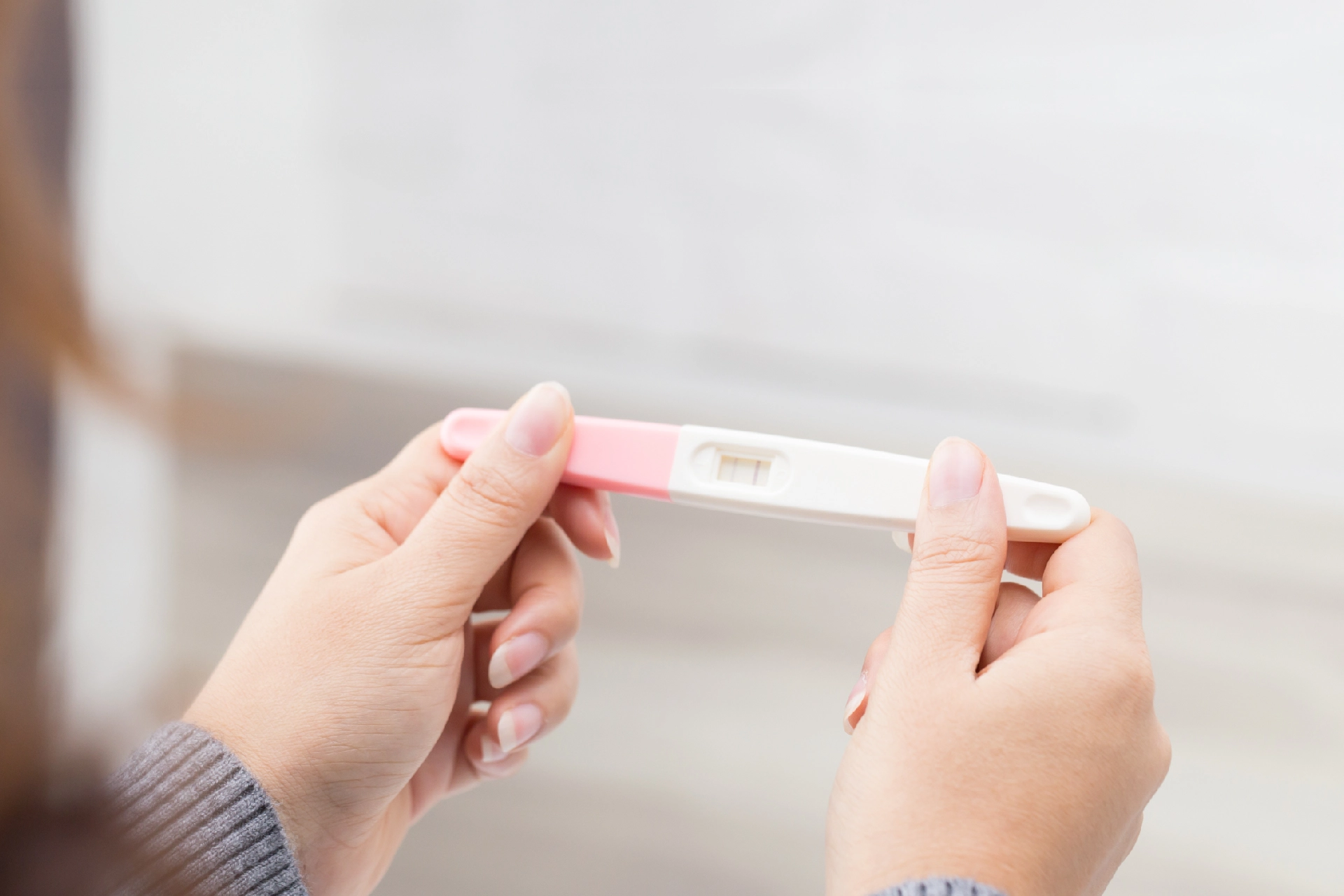Gynaecologist and Obstetrician | 18 min read
Calcium for Women: Mineral Important for Women's Health
Medically reviewed by
Table of Content
Key Takeaways
- Calcium for women is important to prevent osteoporosis
- Calcium-rich foods for bones include fish, yoghurt, and milk
- Reduce white patches on your skin with a calcium-rich diet
Calcium is one of the most important minerals required for women. It is found predominantly in teeth and bones and is also essential for muscle health and the proper functioning of nerves. However, many of us aren’t aware of its importance and neglect to take proper calcium supplements. It is during your adolescence and old age that you particularly require calcium in order to improve your bone density. Therefore, ensure that your diet meets the recommended calcium intake.
A deficiency of calcium can lead to osteoporosis. Facts reveal osteoporosis is the prime concern of women’s health, which affects more than 41 million women globally [1]. To meet your daily dose of calcium requirements, have calcium-rich foods 3 times a day. However, if you are unable to get sufficient calcium from your food, eat calcium supplements after consulting with your doctor.
Calcium works better when combined with other essential nutrients like vitamin D. Therefore, consume a well-balanced diet to increase your bone mineral density. You need at least 600mg of calcium per day, which increases to 1200mg if you are pregnant or breastfeeding. Teenage girls require 800mg of calcium while children below 10 years of age may need 600mg.
Read on for more insight into the importance of calcium for women and some calcium-rich food for bones.
Why Is Calcium Important For Women
Calcium is an essential mineral that plays a number of important roles in the body. It is significant for women for the following reasons:
Bone health:
Calcium is the main mineral that makes up bones and teeth. It is crucial for maintaining strong bones and preventing conditions such as osteoporosis, which is a condition that causes bones to become brittle and fragile. Women are at a higher risk of developing osteoporosis due to factors such as menopause, which can cause a decrease in bone density. Adequate calcium intake can help maintain bone density and reduce the risk of osteoporosis.
Pregnancy and lactation:
Calcium is vital for fetal development during pregnancy and for breastfeeding. It is necessary for the proper development of the fetal skeleton and for the production of breast milk.
Cardiovascular health:
Calcium is important for maintaining healthy blood pressure and for proper blood clotting.
Muscles and nerves:
Calcium is necessary to ensure the proper functioning of muscles and nerves. It helps muscles contract and relax and is required to transmit nerve impulses.
Women need to get enough calcium from their diet or supplements to ensure their body has sufficient levels of this essential mineral. Good sources of calcium include dairy products such as milk, cheese, and yoghurt, as well as foods fortified with calcium, such as orange juice and some types of tofu.
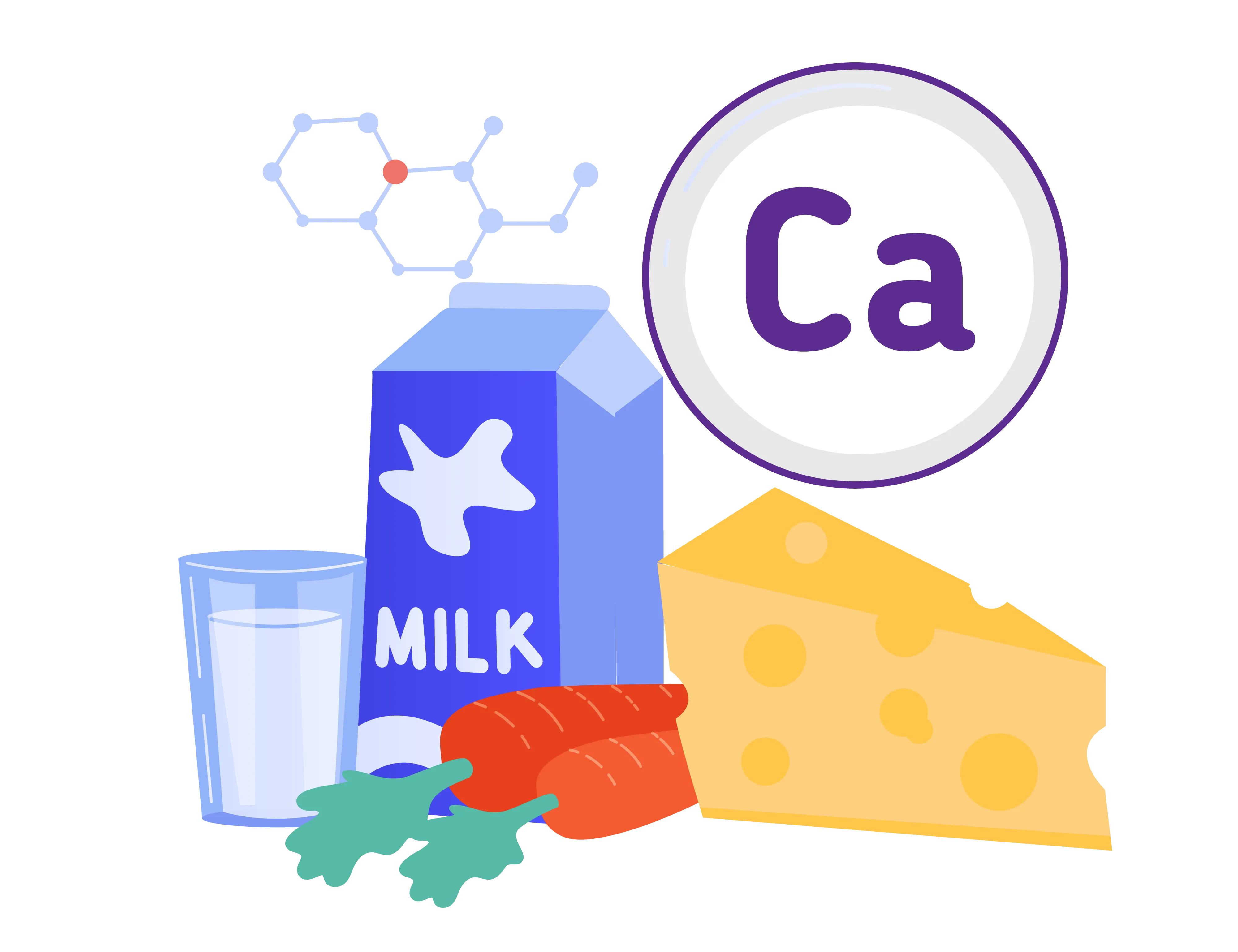
Role Of Calcium In Our Body
Calcium is an essential mineral for maintaining strong bones and teeth and plays several other vital roles in the body. For example, it is involved in the proper functioning of the brain and helps stop bleeding when you are wounded or injured. Calcium is also necessary for muscle strength and contraction and helps regulate heart rhythm.
One of the critical functions of calcium in the body is its ability to help muscles contract and relax. This is particularly important for women during menstrual cramps, as calcium can help to alleviate muscle cramps and discomfort. In addition to its role in muscle function, calcium is essential for building strong bones and performing other bodily functions. It is used to create bone tissue, the building blocks of the skeleton, which can be thought of as a "bone account." This tissue is like money in a bank account that can be deposited and withdrawn.
From infancy to age 30, you can add as much bone tissue to your skeleton as you like. However, after age 30, the amount of bone tissue that can be made is fixed. The body uses calcium to build bone tissue until age 30, after which the "bone account" becomes full, a state known as peak bone mass. Peak bone mass is the maximum amount of bone tissue that can be attained in the skeleton, and it can be influenced by genetics, environment, diet, and other factors. Therefore, it is vital to make sure you meet the recommended daily amounts of calcium at different ages to reach your full potential for peak bone mass.
Simply put, your body can only use calcium to build bone tissue until age 30. After that, no matter how much calcium you consume, your bone tissue will not increase or change significantly. Therefore, it is essential to build sufficient calcium reserves in your body before age 30, so it can be drawn upon later in life, even as the body requires calcium for various functions. Then, just as money can be withdrawn from a bank account to meet your needs or wants, the body can draw upon its bone tissue reserves as needed, reducing the overall amount of bone tissue in the skeleton.
Getting enough calcium in your diet or through supplements is important to ensure that your body has sufficient levels of this essential mineral. Good sources of calcium include dairy products such as milk, cheese, and yoghurt, as well as foods fortified with calcium, such as orange juice and some types of tofu. Leafy green vegetables, nuts, and seeds are also good sources of calcium. Calcium supplements are available in various forms, including tablets, capsules, and chewable. Still, speaking with a healthcare provider before taking a calcium supplement is crucial, as taking too much calcium can have adverse side effects.
Calcium is Necessary at Every Stage In a Woman's Life
Calcium is a crucial nutrient for women's bone health, but it is often not given enough consideration until menopause is approaching. However, the importance of calcium intake should be recognized from childhood and throughout adulthood in order to build and maintain strong bones. Failing to prioritize calcium intake at all stages of life can increase the risk of osteoporosis and other bone-related issues later on.
Calcium Recommendations for Infants: 500 mg/day
During infancy, it is essential to ensure that the diet includes an adequate amount of calcium to support the growth and development of bones. This is particularly important for girls, as the foundation for strong bones is laid during this stage of life. A daily intake of 500 mg of calcium is recommended for infants to meet their needs and support healthy bone growth. Failing to prioritize calcium intake during this crucial period can have long-term consequences for bone health.
Calcium Recommendations for Pre-teens, Adolescents, and Early Adulthood: 800 mg/day
It is important to note that while the teenage years are a crucial time for building strong bones, the body continues to use calcium from the diet to build bone mass up until age 30. After this point, bone mass decreases if insufficient calcium is consumed. It is crucial to prioritize calcium intake throughout adulthood to maintain strong bones. Physical activity, vitamin D intake, and hormone levels can also impact bone health and should be considered when maintaining strong bones. It is essential to prevent osteoporosis by ensuring adequate calcium intake and engaging in other bone-strengthening behaviours.
In addition to prioritizing calcium intake, it is also essential to engage in regular physical activity to support bone health. Weight-bearing exercises, such as running or jumping, can help to stimulate bone growth and increase bone density. In addition, one must ensure that the diet includes an adequate amount of vitamin D, as this nutrient plays a crucial role in calcium absorption and maintaining strong bones. Sufficient vitamin D can be obtained through exposure to sunlight or the consumption of vitamin D-rich foods such as fatty fish, eggs, and fortified foods.
Calcium Recommendations for Adults: 600 mg/day
It is essential to prioritize calcium intake throughout adulthood in order to maintain strong bones. The body uses calcium from the diet to build bone mass up until age 30 when women reach their maximum bone mass. The bone mass may decrease if insufficient calcium is consumed, potentially leading to conditions like osteoporosis. Many different sources of calcium can be incorporated into the diet, including dairy products like milk, cheese, and yogurt, as well as non-dairy sources such as leafy green vegetables, nuts and seeds, and fortified foods. It is also important to consider the role of other nutrients in bone health, such as vitamin D and protein, which can help to support the absorption and utilization of calcium in the body. Additionally, it is essential to avoid lifestyle factors that can negatively impact bone health, such as smoking, excessive alcohol consumption, and a sedentary lifestyle. By making choices that support overall bone health, adults can take steps to maintain strong bones throughout their lifetime.
The Beginning of Menstruation
During menstruation, the uterus contracts to expel blood and tissue, which can cause cramps in women. Calcium is necessary for maintaining muscle tone in the uterus, which can help to reduce menstrual pain and cramping. A woman's deficiency in calcium can contribute to menstrual cramps and discomfort. Adequate calcium intake is vital for maintaining strong muscles and reducing menstrual pain. In addition to supporting muscle health, calcium also plays a role in overall reproductive health. Adequate calcium intake can help to regulate hormone levels and support healthy menstrual cycles. Therefore, it is crucial for women to prioritize calcium intake at all stages of life, including during menstruation, to support overall health and well-being.
Pregnancy
During pregnancy and breastfeeding, a woman's calcium needs increase significantly. Women need to ensure that their diet includes enough calcium during this time. A deficiency can lead to the body drawing calcium from the bones to support the baby's development. The baby depends entirely on the mother's milk for nutrition and health during lactation, and the mother's bone reserves can be depleted. Women need to prioritize calcium intake during pregnancy and breastfeeding to support their health and their babies.
Perimenopausal and postmenopausal stages
During the perimenopausal and postmenopausal stages, women may experience changes in bone mass. While there is typically minimal change in total bone mass between age 30 and menopause, many women experience rapid bone loss in the first few years after menopause. This bone loss, like a withdrawal from the skeleton, slows over time but can continue throughout the postmenopausal years. Estrogen, a hormone that helps to build bone tissue, plays a role in this process. Therefore, after menopause, when estrogen levels decrease, there may be less bone tissue present, leading to a loss of bone mass and potentially increasing the risk of osteoporosis. However, if a woman reaches her peak bone mass potential by age 30, her risk of experiencing further bone loss and developing osteoporosis may be reduced. Therefore, it is essential to prioritize factors that impact peak bone mass early in life to support strong bones throughout adulthood.
How To Consume A Calcium Tablet?
- Take this medication by mouth, either with or without food (depending on whether it is calcium citrate). Follow the instructions on the product package or as directed by your doctor.
- If your daily dose is more than 600 milligrams, divide it and take it at intervals throughout the day for better absorption. If you have any questions, ask your doctor or pharmacist.
- When using the liquid form of this medication, measure the dose carefully with a special measuring device or spoon.
- Do not use a household spoon, as you may not get the correct dose.
- If you are taking the chewable form, chew thoroughly before swallowing.
- If you are taking capsules, swallow each one whole without crushing or chewing.
- Do not crush or chew extended-release tablets, as this may release all the drugs at once and increase the risk of side effects. Instead, swallow the whole pill.
- Take this medication at the same time(s) every day to get the most benefit from it.
- If your doctor has recommended a special diet, it is imperative to follow it to benefit from this medication and prevent serious side effects.
- Do not take other supplements or vitamins without your doctor's advice.
- Calcium supplements are available in different forms containing different amounts of calcium and vitamin D. Ask your doctor or pharmacist to help you choose the best product.
- If you think you may have a severe medical problem, seek immediate medical attention.
Calcium Tablet Uses
- This medication is used to treat or prevent low levels of calcium in the blood caused by insufficient intake from the diet
- It may be used to address conditions related to low calcium levels, such as:
- Osteoporosis (bone loss)
- Osteomalacia or rickets (weak bones)
- Hypoparathyroidism (reduced activity of the parathyroid gland)
- Latent tetany (a specific muscle disorder)
- It may also be prescribed for individuals who need to ensure adequate calcium intake, such as:
- Pregnant or nursing women
- Postmenopausal women
- People taking certain medications such as phenytoin, phenobarbital, or prednisone
- Calcium is essential for the proper functioning of nerves, cells, muscles, and bones.
- If there is insufficient calcium in the blood, the body will draw calcium from the bones, leading to weak bones.
- Vitamin D helps the body absorb calcium and phosphorus, which are necessary for maintaining and building strong bones.
- Ensuring the right amounts of vitamin D, calcium, and phosphorus is crucial for bone health.
Calcium Tablet Side Effects
- Constipation or stomach upset may occur
- If side effects persist or worsen, inform your doctor or pharmacist
- Many people do not experience serious side effects when taking this medication
- Possible serious side effects include: nausea/vomiting, loss of appetite, unusual weight loss, mental/mood changes, signs of kidney problems (e.g. change in urine amount), bone/muscle pain, headache, increased thirst, increased urination, weakness, tiredness, fast/pounding heartbeat
- A rare but serious allergic reaction to the drug may occur, including symptoms such as rash, itching/swelling (especially of the face/tongue/throat), severe dizziness, and trouble breathing
Calcium Tablet Precautions
- Before taking this medication, inform your doctor or pharmacist if you have allergies to it or other vitamin D products (such as calcitriol). Also, inform the doctor if you have any additional allergies. This product may contain inactive ingredients that can cause allergic reactions or other issues. Speak with your pharmacist for more information.
- Before using this medication, let your doctor or pharmacist know your medical history, particularly if you have: high calcium/vitamin D levels (hypercalcemia/hypervitaminosis D), difficulty absorbing nutrients from food (malabsorption syndrome), heart/blood vessel disease, kidney disease (including kidney stones), certain immune system disorder (sarcoidosis), liver disease, certain bowel diseases (Crohn's disease, Whipple's disease), little or no stomach acid (achlorhydria), low levels of bile, untreated phosphate imbalance.
- Chewable tablets may contain sugar or aspartame. If you have diabetes, phenylketonuria (PKU), or any other condition that requires you to limit/avoid these substances in your diet, use caution. Ask your doctor or pharmacist about safely using this product.
- Let your doctor know if you are pregnant before using this medication. During pregnancy, doses of vitamin D higher than the recommended dietary allowance should only be used when necessary. Discuss the risks and benefits with your doctor.
- This medication is present in breast milk. Consult with your doctor before breastfeeding.
Calcium Tablet Interactions
- Interactions may occur with this medication when taken with other drugs, herbs, or supplements.
- Share a list of all products you use with your doctor and pharmacist.
- Do not start, stop, or change the dosage of any medications without your doctor's approval.
- Certain medications may affect the absorption of calcium and vitamin D, such as tetracycline antibiotics, bisphosphonates, estramustine, levothyroxine, and quinolone antibiotics.
- Separate doses of these medications from amounts of calcium and vitamin D.
- Check labels on prescription and nonprescription products for calcium, phosphate, and vitamin D.
- Vitamin D is similar to calcitriol. Do not use calcitriol while taking vitamin D.
- This medication may interfere with laboratory tests and cause false results.
- Let laboratory personnel and all your doctors know you are using this drug.
Calcium Tablet Overdose
- If someone has overdosed and is experiencing serious symptoms, such as unconsciousness or difficulty breathing, call emergency services (108 for emergency management, 102 for ambulance and 1091, a women's helpline number).
- For less severe overdose symptoms, contact a poison control centre immediately. You can call the National Poison Information Center's toll-free number 1800116117 or dial 102 for an ambulance.
- Overdose symptoms may include nausea/vomiting, loss of appetite, mental/mood changes, headache, drowsiness, weakness, and tiredness.
Importance Of Calcium For Women
Prevent Osteoporosis By Including Calcium In Your Diet
It is vital to take calcium for women’s health as it helps in building strong bones. Your body also requires vitamin D for absorbing calcium. If you do not consume adequate amounts of vitamin
D, there may be a depletion of the calcitriol hormone. This can lead to minimal calcium absorption despite eating calcium-rich foods. Your body may have to absorb calcium stored in the skeleton, which ultimately results in weakening your bones. It also hinders the formation of new and strong bones. So, ensure you take 600IU of vitamin D on a daily basis for better calcium absorption. Have saltwater fish, egg yolks and liver in your diet to get adequate vitamin D in your body [2].
Osteoporosis can be prevented by consuming a diet rich in both calcium and vitamin D. Be it any age, proper calcium intake is an effective remedy to strengthen your bones. Women may begin to lose their bone mass as they reach adolescence. Thus, teens should eat calcium-rich foods to make their bones strong and tough as they enter adulthood. As you age, strong bones are required to minimize chances of fractures or dislocations. Some calcium-rich foods for women’s bone development include yoghurt, fish, milk, green leafy vegetables and cheese.
Additional Read: Vitamin Deficiency TestsHave recommended levels of calcium and tackle premenstrual syndrome
Calcium also plays a vital role in managing premenstrual syndrome symptoms. If your body does not get sufficient amounts of calcium, it can affect your blood’s progesterone and estrogen levels. This may induce premenstrual symptoms like headaches, bloating, mood swings and irritability to name a few. A study has revealed effectiveness of calcium supplements in minimizing these symptoms [3].
Manage your weight by eating calcium-rich foods
For proper development of women’s bones, calcium plays a significant role as mentioned earlier. An interesting fact here is that an adequate amount of calcium can also keep you slim and fit! Calcium functions by binding with fat reserves in your intestine thereby preventing them from getting absorbed in the body. Calcium can also inhibit the production of fat accumulating hormones like insulin and leptin. Enjoy snacking on calcium-rich foods like seeds and almonds and stay fit as a fiddle!
Additional Read: Amazing Weight Loss DrinksTackle whitish spots on your skin by consuming a diet rich in calcium
When discussing calcium for women, it may surprise you to note that calcium also helps in preventing skin damage. If you are not consuming sufficient amounts of this mineral, you may begin to develop white patches on your face and skin. Be it repairing of skin or delaying ageing, calcium plays a significant role in both processes. Have a calcium-rich diet and restore the natural glow on your skin!
Now that you have learnt about the importance of calcium in your diet, you may have also understood the fact that women and calcium are inseparable. Deficiency of calcium can make your bones brittle and weak. This can lead to fractures and dislocations, especially during old age. Make sure you meet the necessary calcium requirements in your diet or meet a doctor who can advise you on appropriate supplements to replenish its levels in your body. Reach out to top specialists on Bajaj Finserv Health. Book an in-person appointment or online doctor consultation and address your concerns from the comfort of your home. Be proactive and take healthy measures to ensure your bone health and prevent osteoporosis.
Calcium Intake and Colon Cancer Risk
Some research has suggested that high calcium intake may be associated with a reduced risk of colon cancer, particularly in individuals who also consume a high amount of fibre. [1]
Calcium is thought to play a role in colon cancer prevention by binding to and removing potentially harmful substances from the digestive tract. This may help to reduce the risk of DNA damage and the formation of cancerous cells in the colon. In addition, calcium also helps to regulate the growth of cells in the colon, potentially slowing the development of cancerous cells.
It is important to note that while some studies have found a link between high calcium intake and a reduced risk of colon cancer, more research is needed to understand this relationship fully. Other factors, such as diet, exercise, and smoking habits, may also influence colon cancer risk.
Regulating Blood Pressure and Preventing Hypertension
Calcium for women plays a vital role in the proper functioning of the heart and blood vessels. It helps to regulate blood pressure and prevent hypertension, a significant risk factor for heart disease and stroke. Calcium is essential for the heart muscle's normal contraction and relaxation and helps regulate the heart's electrical activity.
It is also important for the proper functioning of blood vessels, controlling the constriction and relaxation of the smooth muscle in the walls of the arteries. Low calcium levels can lead to constricted blood vessels and high blood pressure. Calcium may also help prevent plaque formation in the arteries, which can lead to heart disease.
Ensure adequate calcium intake for heart health. It is crucial to consume a diet rich in calcium-containing foods and speak with a healthcare professional about using calcium supplements.
Strengthening Tooth Enamel and Preventing Cavities
Adequate calcium intake is important for the health of the teeth, as it helps to strengthen tooth enamel and prevent dental cavities, also known as dental caries. Tooth enamel is the hard outer layer of the teeth that protects them from damage and decay. When tooth enamel is weak or damaged, it can develop dental cavities, which can cause pain and discomfort.
Calcium is a key component of tooth enamel and helps strengthen and protect the teeth from damage. When you consume enough calcium, your body uses it to help repair and maintain the health of your teeth.
Calcium also plays a role in the production of saliva, which helps to neutralize the acid in the mouth that can lead to tooth decay. In addition, saliva contains calcium and other minerals that can help to remineralize the teeth, helping to repair and strengthen tooth enamel.
References
- https://www.netmeds.com/health-library/post/calcium-important-mineral-womens-health
- https://www.betterhealth.vic.gov.au/health/healthyliving/nutrition-womens-extra-needs
- https://www.nof.org/patients/treatment/calciumvitamin-d/
- https://www.mayoclinic.org/healthy-lifestyle/nutrition-and-healthy-eating/in-depth/calcium-supplements/art-20047097
- https://www.womenshealth.gov/healthy-eating/how-eat-health/vitamins-and-minerals-women
- https://www.healthline.com/health/pms-supplements#calcium
- https://www.jognn.org/article/S0884-2175(15)34145-9/fulltext
- https://www.bones.nih.gov/health-info/bone/bone-health/nutrition/calcium-and-vitamin-d-important-every-age
- https://www.ncbi.nlm.nih.gov/pmc/articles/PMC5313351/
Disclaimer
Please note that this article is solely meant for informational purposes and Bajaj Finserv Health Limited (“BFHL”) does not shoulder any responsibility of the views/advice/information expressed/given by the writer/reviewer/originator. This article should not be considered as a substitute for any medical advice, diagnosis or treatment. Always consult with your trusted physician/qualified healthcare professional to evaluate your medical condition. The above article has been reviewed by a qualified doctor and BFHL is not responsible for any damages for any information or services provided by any third party.


